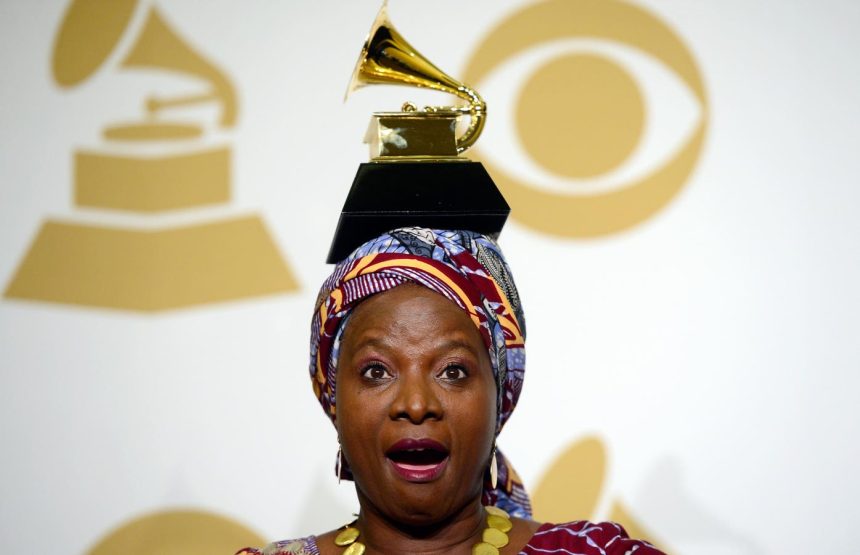Angélique Kidjo’s four-decade career is a vibrant tapestry woven with the threads of musical innovation, cultural preservation, and unwavering social advocacy. From her early days navigating the politically charged landscape of Benin to her current status as a global icon, Kidjo’s journey has been defined by a resolute commitment to artistic integrity and a deep-seated passion for using her voice to amplify the stories and struggles of her homeland and its people. Her 2025 Grammy nomination, a testament to her enduring relevance, underscores not only her personal achievements but also the increasing recognition and appreciation of authentic African artistry on the world stage.
Kidjo’s musical odyssey began in the 1980s amidst the oppressive political climate of post-coup Benin. Even then, her powerful voice and burgeoning talent couldn’t be contained. Her debut album, “Pretty,” released in 1981, garnered regional success, propelling her onto a path of artistic exploration and social commentary. However, the restrictive environment of Benin, where artistic expression was often stifled, clashed with Kidjo’s innate desire for creative freedom. Forced to perform propaganda-laden music, a stark contrast to her own artistic vision, Kidjo realized that her true voice could only flourish beyond the borders of her homeland. This realization fueled her decision to leave Benin, embarking on a journey that would ultimately transform her into a global musical force.
Upon arriving in Paris, Kidjo encountered a new set of challenges. Navigating the complexities of the European music industry, while simultaneously holding onto her African identity, required both resilience and a fierce determination to remain true to her roots. Her signing with Island Records in 1991 marked a pivotal moment in her career. Insisting on maintaining her artistic freedom, Kidjo defied expectations and stereotypes, carving a space for herself within the industry that allowed her to seamlessly blend African rhythms and traditions with global musical influences. This unwavering commitment to authenticity would become a hallmark of her career, setting her apart and paving the way for future generations of African artists.
Kidjo’s impact extends far beyond her own musical achievements. She has become a mentor and champion for emerging African artists, fostering a collaborative spirit that transcends genre and generation. Her work with artists like Davido and Burna Boy exemplifies her belief in the evolving nature of African music, a dynamic force that constantly adapts and reinterprets tradition while embracing contemporary influences. Kidjo passionately rejects the notion of a static or “pure” African musical tradition, arguing that music, like the stories it tells, must evolve to reflect the changing realities of the people who create it. This philosophy is evident in her own music, a vibrant fusion of traditional African rhythms, contemporary global sounds, and powerful lyrics that speak to universal themes of resilience, love, and social justice.
Her numerous Grammy awards and nominations, spanning from her first nomination in 1995 for “Agolo” to her most recent in 2025, serve as concrete markers of her enduring impact on the global music scene. Each award, from her first win in 2007 for “Djin Djin” to her 2022 win for “Mother Nature,” represents not only a personal triumph but also a significant step forward for the recognition of African music on a global scale. Her collaborations with renowned artists like Alicia Keys, Yo-Yo Ma, and the Soweto Gospel Choir further solidify her position as a bridge-builder, connecting diverse musical traditions and fostering cross-cultural understanding through the universal language of music.
The Carnegie Hall celebration of her 40-year career in 2024 was a fitting tribute to Kidjo’s extraordinary journey. Surrounded by contemporaries and collaborators who represent the breadth and depth of her influence, Kidjo’s performance was a testament to her enduring power and the vibrant legacy she continues to build. Her commitment to artistic integrity, her unwavering social advocacy, and her deep-rooted passion for celebrating the rich tapestry of African music have solidified her place as not just a musical icon, but also a cultural ambassador, carrying the torch for future generations of African artists and sharing the transformative power of music with the world.



